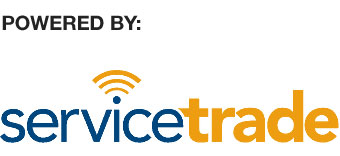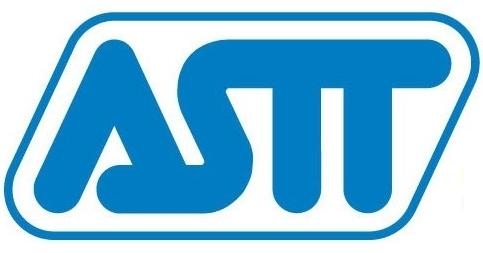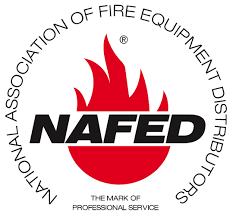Cooking with Caution: Prevent and Put out Restaurant Kitchen Fires with These Tips
November 17, 2015
According to statistics provided by the Council of Canadian Fire Marshals and Fire Commissioners, restaurant fires caused over $318,571 in damages in 2008 alone. A large percentage of these fires were the direct result of human error. These fires can devastate businesses, leading to lost revenues, damaged equipment, and even permanent closure. However, with a little bit of training, you and your employees can minimize the damage to your restaurant. Here’s what you can do to stay safe, despite open flames and hot equipment.
Prevent Kitchen Fires
Ever hear of the phrase, “An ounce of prevention is worth a pound of cure?” Many restaurant fires could be prevented if employees were more aware of their surroundings, kept their cooking areas clean, and scheduled regular maintenance of their equipment.
Be Aware of Surroundings
- Never leave food unattended. This applies to food on a stove, in the oven, or in the microwave. Most fires occur when the cook is distracted.
- Don’t wear loose clothing. Dangling sleeves may come in contact with stove burners and open flames. It’s better to wear short, tight-fitting sleeves.
- Keep pot holders and towels away from cooking surfaces. It doesn’t take much for a stray serviette to catch a spark.
- Turn pan and pot handles away from you. This keeps pans and pots from bumping off the stove.
- Heat oils gradually and use extra caution with deep fryers. Different oils heat at varying temperatures, so start low and work your way up to keep oil from catching fire.
Keep Cooking Areas Clean
- Remove ashes daily from wood- and charcoal-burning ovens. Dispose of ashes or other combustible materials in metal containers at least 10 feet away from any building.
- Store flammable liquids in tightly sealed containers. Keep these containers away from supplies, food, and food-preparation areas.
- Clean up grease. Fryers, broilers, grills, and convection ovens are notorious for collecting grease. Keeping these areas clean reduces the likelihood of a grease fire.
- Wipe up spills. A clean stove is a fire-free stove. Don’t let food or grease build up on or around your cooking areas.
Schedule Regular Maintenance
- Watch for frayed cords or wiring in electrical equipment. Repair or replace equipment as needed.
- Inspect exhaust systems for grease build-up. Inspect these systems quarterly if your restaurant handles a high volume of orders, or twice a year for moderate-volume orders.
- Check smoke detectors regularly, but don’t install them near the kitchen. Restaurant kitchens are bound to put out some smoke now and again. If you place the smoke detector too close to the kitchen, it will go off frequently. Instead, install the detector away from the kitchen smoke, but close enough that it can detect an actual fire.
Put out Kitchen Fires
Sometimes restaurant fires happen despite cautionary steps. Be prepared to put out a fire quickly or to evacuate if necessary.
Types of Fires
- Grease Fire: Never throw water on a grease fire. Water and grease don’t mix, so it causes the grease to splatter and spread. Instead, turn off the heat source and smother the fire. If the fire is in a pan, cover it with another pan. If it’s outside of a pan, smother the fire with baking soda or use a fire extinguisher.
- Electrical Fire: As with a grease fire, never put water on an electrical fire. Shut off the main breakers. Put out the fire with a fire extinguisher or smother it with a fire blanket. Do not swat at it with towels or aprons.
- Oven Fire: Turn off or unplug the oven. Keep the oven door closed and leave it closed. This cuts off the oxygen and smothers the fire. If the fire persists, do not open the oven, even to smother it in baking soda. The increase in oxygen may cause the fire to flare. Instead, call the fire department.
Use the Right Equipment
- Automatic fire-suppression systems: Automatic suppression systems dispense chemicals to fight flames. Activating the system also shuts down the electric or fuel supply to the cooking equipment.
- Portable fire extinguishers: Restaurant fires aren’t always the result of stove tops or ovens. If your fire occurs outside of the area your fire suppression system covers, you need an extinguisher on hand for emergencies.
Fire Safety Procedures
In the event of a fire, designate at least one staff member to shut off gas and electrical power. Choose another employee to call the fire department and determine if you and your staff need to evacuate. Make sure each of the staff knows where to exit the building, and have emergency exits clearly marked for your customers, too.
Stay Safe!
Use these tips to keep your restaurant, your employees, and your customers safe. By knowing how to prevent fires and how to take action during an emergency, you can keep fire damage to a minimum.
For more information, be sure to read our safety blog or contact our helpful staff at Nutech Safety in Kamloops or Kelowna should you have any further questions.






